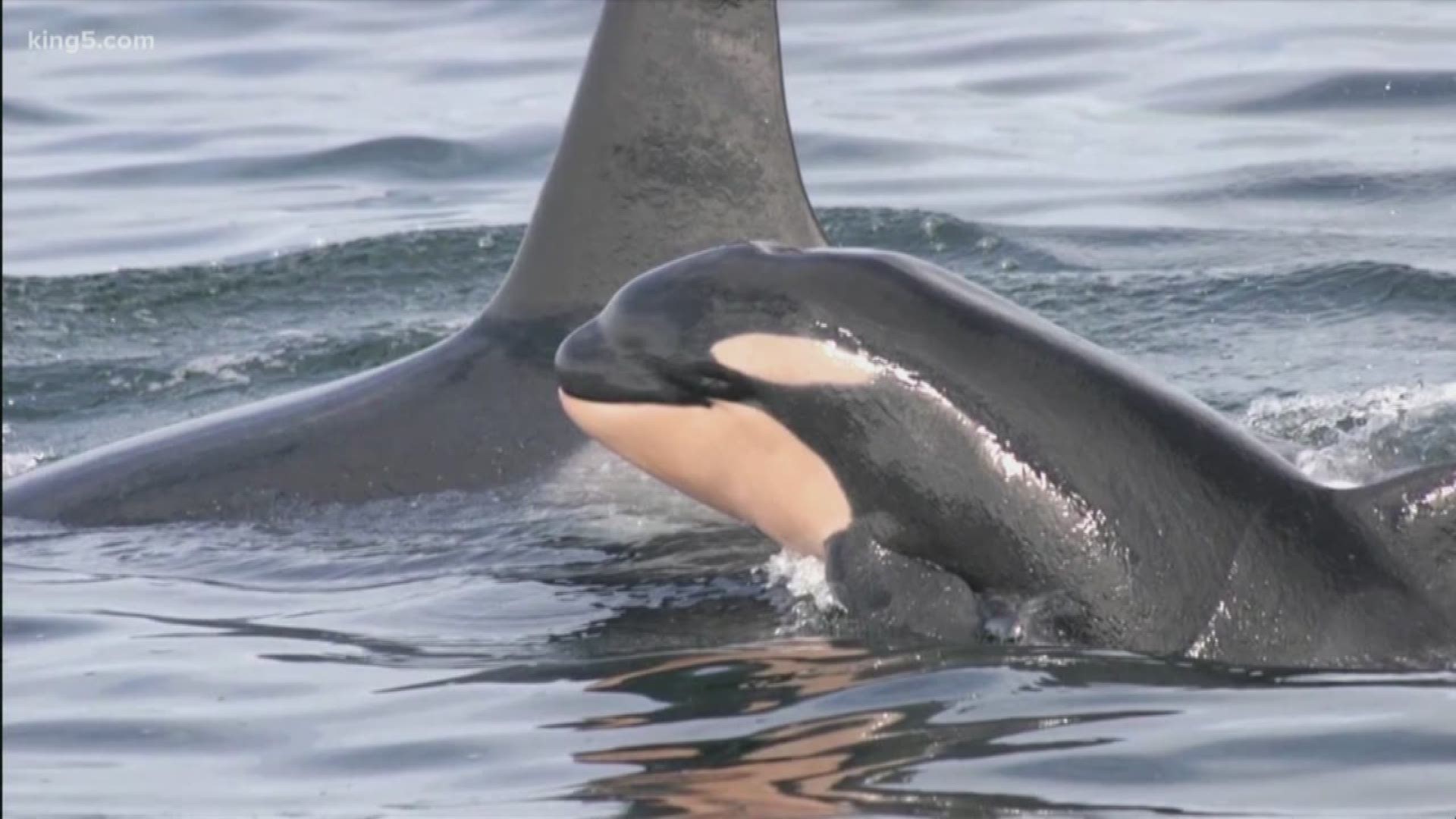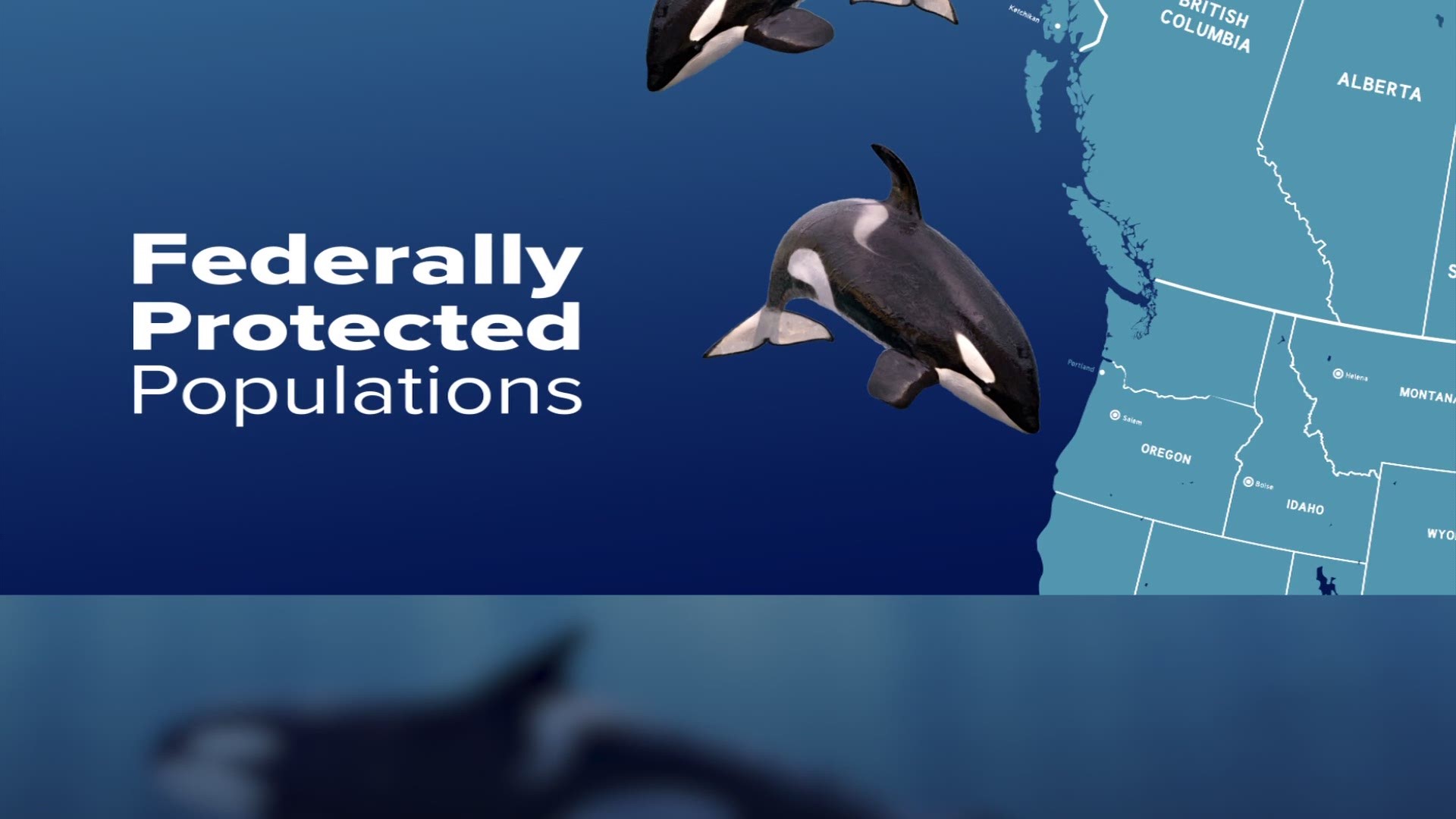FRIDAY HARBOR, Wash. — On a picture-perfect day around the San Juan Islands, pictures from above the surface are what one research team uses to identify what’s in the water below.
The area is a critical summer habitat for the Southern Resident killer whales and their scat makes for a rich library of data. A team with the University of Washington Center for Conservation Biology uses rescue dogs to locate the scat, collect it and then analyze it in a lab.
On this day, a terrier mix named Eba is learning to sniff the scent.
“As soon as she is on the actual sample, her body gets really tense and it can be a very quick jolt like that. And then she does this thing where she kind of cranes her neck like that,” explained biologist Deborah Giles.
Scientists test the fecal material for information about stress, nutrition, and all of the failed pregnancies. They found that 70% of pregnant Southern Resident females miscarry their babies.
“And out of that, 23% of those pregnancies are late term pregnancies which are very costly, energetically costly, for the female and also dangerous for the female because the bigger the calf, the dead calf in these cases, the harder it is to give birth to a dead fetus,” Giles said.
The whales are underfed, Giles says. The Southern Resident orcas only eat fish and their preferred diet is Chinook salmon, which are also declining. It’s the reason Giles says the whales aren’t visiting the Salish Sea as often as they used to.
“If they never come back, but yet are finding food someplace else, that would make me happy. At least until we get our act together in here and recover salmon stocks,” she said.
One of the most recent Southern Resident orcas documented dead is J17. She was J35’s mom, the orca who captivated the world by pushing her dead calf for 17 days across 1,000 miles in 2018. The whale who lost her calf has now also lost her mother. J35 is now the oldest female in her family group, the leader who will continue their struggle to survive.
“What I want to say to people is, to don’t give up on the Southern Residents," Giles said. “If we recover, when we recover, the Southern Residents it means we are doing good things for the overall environment.”


